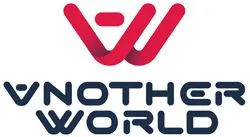Advantages and Disadvantages of Franchising a Business

In today’s ever-shifting commercial landscape, franchising stands as both an enticing avenue for expansion and a tapestry of complexities. This comprehensive exploration dissects the franchising model — its theoretical foundations, historical evolution, and current market implications — while rigorously examining its manifold benefits and inherent challenges. The aim is to furnish aspiring entrepreneurs with a nuanced understanding of what are the advantages and disadvantages of franchising.
Introduction to Franchising
What is Franchising?
Franchising is a business model where an established company — the franchisor — grants an independent operator — the franchisee —the right to use its brand, proprietary business model, and operational systems. In return, the franchisee commits to strict adherence to a preordained system and contributes financially through fees and royalties. This mutually beneficial arrangement creates a symbiotic alliance, wherein the franchisor’s storied legacy and meticulously honed processes are leveraged to mitigate the risks typically associated with new ventures. Whereas the franchisee gains a ready-made platform for entrepreneurial success.
Brief History of Franchising
The lineage of franchising can be traced back to the medieval guilds and merchant networks that sought to preserve quality and consistency through regulated trade practices. These early incarnations laid the groundwork for the modern franchising model, which appeared during the 20th century as pioneering enterprises — such as McDonald’s and 7-Eleven. These demonstrated that a replicable, standardized system could yield exponential growth across diverse markets. This evolution shows how franchising has shifted from small-scale trade to a corporate strategy that adapts to modern economic challenges.
Importance of Franchising in Today's Market
In an era characterized by rapid digital transformation and fluctuating consumer expectations, franchising has emerged as a pivotal strategy for swift market entry and operational uniformity. It provides entrepreneurs with an expedited route to success by capitalizing on the established equity of renowned brands. Moreover, the centralized support structures and marketing endeavors inherent in the franchising model afford a competitive edge. That is particularly valuable in today’s hyper-competitive and ever-globalizing marketplace. Now, let's focus on the pros and cons of buying a franchise business.

Advantages of Franchising
It's essential to understand the full scope of advantages and disadvantages when buying any business. Franchising confers a range of advantages that are instrumental in fostering business growth. Below, we examine these benefits through a detailed lens.
Established Brand Recognition
One of the primary advantages of franchising is the immediate elevation of brand prestige. Franchisees benefit from a well-established brand identity, backed by years of customer loyalty and trust. This pre-established credibility not only boosts customer acquisition but also serves as a deterrent against competitive encroachment. The inherent brand recognition acts as a form of reputational collateral, ensuring that the business can swiftly integrate into the market with a robust foundation.
Access to a Proven Business Model
One of the most compelling facets of franchising is the opportunity to adopt a rigorously tested business model. This model, refined through years of improvement and real-world application, offers a detailed blueprint that minimizes the uncertainties inherent in startup ventures. Franchisees benefit from pre-established operational protocols, refined supply chain logistics, and optimized customer service frameworks. This empirical approach to business reduces the trial-and-error phase and provides a reliable pathway to profitability.
Support and Training from the Franchisor
The franchising model is distinguished by its extensive support ecosystem. Franchisors typically invest in comprehensive training programs, encompassing both initial onboarding and ongoing professional development. This robust support network includes operational mentoring, regular performance audits, and real-time consultancy. All designed to empower franchisees to excel in their localized markets. Such continuous engagement not only reinforces adherence to best practices but also instills confidence in the franchisee. Thus, ensuring consistent service quality across the network.
Reduced Risk of Failure
Statistical evidence suggests that franchises exhibit a significantly lower failure rate compared to independent startups. This enhanced stability is attributable to the combination of factors such as a proven operational framework, a pre-existing brand reputation, and an extensive support system. The collective wisdom embedded in the franchisor’s methodology serves as a helping hand against the common pitfalls of entrepreneurship. Therefore, offering a more secure avenue for those averse to high-risk ventures.
Marketing and Advertising Support
Franchisors often render large-scale, centralized marketing and advertising campaigns that benefit the entire network. By leveraging economies of scale, these initiatives ensure a consistent and professionally managed brand presence across all franchise locations. This syndicate approach to marketing not only amplifies the brand’s visibility but also relieves individual franchisees from the burden of devising and executing advertising strategies. As a result, market penetration is both expansive and cohesive, enhancing customer engagement on a broad scale.

Disadvantages of Franchising
While exploring the pros and cons of franchise business models, investors should be aware of the potential disadvantages franchising may bring, especially in terms of financial and operational limitations. The franchising model is not devoid of significant challenges. A critical evaluation reveals several nuances that must be considered.
Initial Investment Costs
Franchising demands a substantial upfront capital, encompassing franchise fees, leasing expenses, renovation costs, and the procurement of specialized equipment. This initial financial commitment can be a formidable barrier, particularly for emerging entrepreneurs or those with constrained access to funding. The high entry costs necessitate a financial evaluation to ensure that the anticipated returns justify the considerable investment.
Ongoing Royalties and Fees
In addition to the initial capital outlay, franchisees are bound by continuous fiscal obligations in the form of royalties and additional fees. These recurring payments, often calculated as a percentage of gross revenue, are designed to underwrite the ongoing support, training, and marketing services provided by the franchisor. However, they also influence net profit margins over time, thereby affecting the overall financial viability of the enterprise. This financial obligation can be one of the most critical disadvantages for consideration, especially for those scrutinizing the long-term profitability of the franchise model.
Limited Control Over Business Operations
Franchise agreements impose stringent operational protocols to preserve brand uniformity, which invariably influence the franchisee’s autonomy. While such standardization is essential for maintaining a consistent customer experience, it simultaneously stifles entrepreneurial creativity and limits the ability to tailor operations to the local market. For innovators who desire the freedom to experiment and adapt, these constraints can be profoundly restrictive.
Risk of Brand Reputation Damage
In a tightly integrated franchise network, the actions of a single franchisee can have effects on the entire brand’s reputation. A lapse in quality, service, or operational efficiency at one location can trigger a ripple effect, tarnishing the collective image of the brand. This interdependence means that individual franchisees must adhere to impeccable standards at all times, as any deviation can inflict collateral damage across the network. Such reputational vulnerability is a significant risk, particularly in today’s interconnected digital landscape where consumer feedback can be instantaneous and widespread. It’s one of the significant disadvantages of franchising for franchisors, as well as for franchise owners.
Potential for Franchise Agreement Issues
Franchise agreements are typically dense legal documents consisting of intricate clauses and stipulations that present the rights and obligations of both parties. These agreements often contain ambiguities that can lead to interpretative disputes, particularly concerning territorial rights, performance benchmarks, and fee structures. Navigating this legal terrain demands exhaustive due diligence and, frequently, the counsel of specialized legal experts. The potential for disputes and associated legal costs represents a notable drawback of the franchising business.
A meticulous evaluation of the advantages and disadvantages of franchise business models reveals that while a proven system delivers robust support and brand credibility, it simultaneously imposes operational constraints that may restrict localized innovation.

Making the Decision: Is Franchising Right for You?
Self-Assessment: Prospective Franchisee Checklist
Before committing to a franchise, it is imperative to conduct a thorough self-assessment. Reflect on the following critical considerations:
Financial Resilience: Do you possess the requisite capital not only for the initial investment but also to sustain ongoing royalty payments and operational costs?
Operational Adaptability: Are you prepared to operate within a rigid, standardized framework that may limit your capacity for local innovation?
Long-Term Vision: Can you commit to the franchisor’s prescribed business model over the long term, aligning your personal entrepreneurial goals with the established brand ethos?
Synergistic Compatibility: Does the franchisor’s strategic vision, operational methodology, and cultural values resonate with your own aspirations?
Researching Your Options and Finding the Right Franchise
A meticulous and deep investigation is indispensable when selecting a franchise. Prospective franchisees should:
Scrutinize the Franchise Disclosure Document (FDD): This critical document offers an in-depth overview of the franchise’s financial performance, legal obligations, and operational mandates.
Engage in Peer Consultations: Conversations with current and former franchisees can yield invaluable, real-world insights into the daily operations and hidden challenges of the business.
Analyze Local Market Dynamics: An evaluation of demographic trends, competitive pressures, and regional consumer behaviors is essential to understand the brand’s potential success in your target area.
Compare Multiple Opportunities: Not every franchise is created equal; it is vital to compare different models and select one that aligns with your financial goals and operational preferences.
Consulting with Experts: Legal and Financial Advice
Given the multifaceted and intricate nature of advantages and disadvantages of franchise business, securing professional guidance is essential. Engage:
Franchise Attorneys: Legal professionals who specialize in franchise law can help demystify complex contractual clauses and safeguard your rights.
Financial Advisors: These experts can assess the investment’s viability, forecast potential returns, and identify fiscal risks.
Industry Consultants: Their strategic insights can provide a comprehensive overview of market trends and operational best practices, ensuring that your decision is underpinned by sound analysis and expert guidance.

Conclusion
Recap of Pros and Cons
Let’s brief on advantages and disadvantages of franchising that must be carefully weighed:
Advantages of franchising:
- • Immediate access to an established brand and customer trust.
- • Adoption of a proven, meticulously refined business model.
- • Comprehensive training, support, and centralized marketing initiatives.
- • A demonstrably lower risk of failure relative to independent startups.
Disadvantages of franchising:
- • High initial capital requirements and ongoing fiscal obligations.
- • Constrained operational autonomy and limited scope for local innovation.
- • Collective vulnerability to reputational risks across the network.
- • Potential legal entanglements stemming from complex franchise agreements.
Final Thoughts on Choosing Franchising as a Business Model
Deciding to pursue a franchise venture is a multifaceted and deeply personal choice. When considering the advantages and disadvantages of opening a franchise, entrepreneurs must balance the allure of immediate market entry against the long-term commitments and potential rigidity inherent in such a business structure.
For those who value the security of a pre-established brand and the mitigated risks inherent in a proven model, franchising can serve as a robust conduit to entrepreneurial success. On the other hand, individuals who cherish unbridled creative freedom and complete operational autonomy may find the regimented structure of franchising overly restrictive.
You have been acquainted with the pros and cons of owning a franchise business. Ultimately, a decision grounded in self-assessment, meticulous research, and expert counsel will align your entrepreneurial aspirations with a business model that best suits your long-term vision and risk tolerance.

Written by
Topfranchise.com Editorial Team
The Topfranchise.com editorial team consists of professionals with years of experience in franchising, providing verified information for entrepreneurs and investors.
Learn more
of franchise
business
 USA
USA India
India Canada
Canada The UK
The UK Indonesia
Indonesia The Philippines
The Philippines Australia
Australia The UAE
The UAE Saudi Arabia
Saudi Arabia South Africa
South Africa Germany
Germany Pakistan
Pakistan Singapore
Singapore Malaysia
Malaysia









